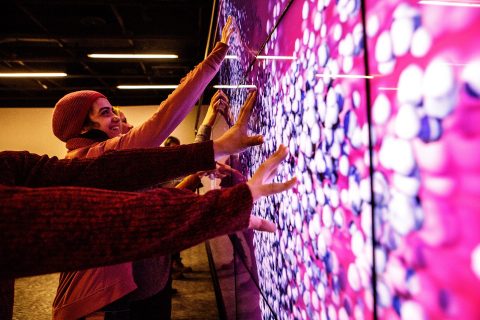Game Design (Minor)
Why study Game Design?
Game design is what makes the difference between watching a movie and participating in a virtual world. It’s not only about telling stories; it’s about imagining meaningful player actions and interactions within a simulated reality.
In the digital age, game design goes beyond video games to include any way of playfully interacting with content and interactive systems. The mechanisms of games can be found in journalism, filmmaking, education, psychology, medicine, marketing, and more, as a way of better engaging with audiences. Understanding the infrastructure of playful interaction will position you to make a contribution in any of those fields.
Students interested in game design will benefit from Concordia’s Centre for Technoculture, Arts and Games (TAG), which is leading the way for games research-creation in Canada by gathering together designers, artists, engineers, students and scholars. Montreal is a gaming hub and you’ll learn from professors connected to the industry, many of whom are currently working as independent game developers.
Special funding for out-of-province students
Up to $4000 for undergraduate programs.
Program structure
Program option
- Minor in Game Design (24 credits)*
*Please note admission to this Minor is only available to students in their second year and later.
The minor must be combined with an honours, specialization or major program.
Courses
United States students: A U.S. Federal Student Aid-eligible version of this program is offered. This version meets all U.S. regulations (such as no co-operative education or e-courses) for eligible programs.
After your degree
Thanks to Concordia's emphasis on taking an interdisciplinary approach to your field of study, you'll graduate with a depth of knowledge informed by an understanding of how your subject connects to the wider world. You'll be ideally positioned to succeed in a professional role that demands rigorous analytical thinking, sharp communication skills and the ability to approach problem-solving from multiple dimensions.
Other programs of interest

When you study computation arts, you become part of a visionary digital program that explores the intersection of design, art and technology.
Department
Department of Design and Computation Arts
Faculty

Stimulate the senses. Engage the mind. When you study computation arts, you become a digital artist, using algorithms and computational theory to create interactive multimedia that breaks new audio-visual ground. Computation Arts is Creative Computing – with a capital C.
Department
Department of Computer Science and Software Engineering
Faculty


